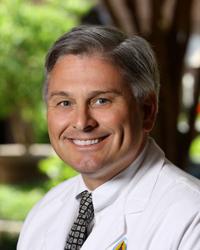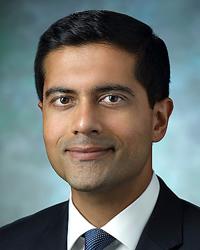Research Lab Results
-
Older Americans Independence Center
The Older Americans Independence Center (OAIC) studies frailty, an age-related condition in which older adults lose the capacity to cope with stressors and become vulnerable to functional decline, loss of independence and mortality. Since its original funding in 2003, the center has helped demonstrate that frailty is a syndrome caused by multiple biological mechanisms that are expressed through characteristics of decreased resiliency and reserve in older adults. The mission of OAIC is to provide a hypothesis-driven, frailty-focused, highly interdisciplinary center where supported investigators receive the expertise, resources and training necessary to make fundamental discoveries related to the origins and causes of frailty and then move these discoveries towards frailty-focused interventions. -
Frailty Science and the Biology of Healthy Aging
Our Mission: To provide scientists, students, and community members with state-of-the-art information on frailty-related science and how it might impact health and wellness for older adults. Our Goal: To improve the understanding of how frailty develops, how to best assess it, and how to best treat and prevent frailty-related decline. -
Auditory Brainstem Laboratory
The overall goal of the Auditory Brainstem Library is to understand how abnormal auditory input from the ear affects the brainstem, and how the brain in turn affects activity in the ear through efferent feedback loops. Our emphasis is on understanding the effects of different forms of acquired hearing loss (genetic, conductive, noise-induced, age-related, traumatic brain injury-related) and environmental noise. We are particularly interested in plastic changes in the brain that compensate for some aspects of altered auditory input, and how those changes relate to central auditory processing deficits, tinnitus, and hyperacusis. Understanding these changes will help refine therapeutic strategies and identify new targets for treatment. We collaborate with other labs in the Depts. of Otolaryngology, Neuroscience, Neuropathology, the Wilmer Eye Institute, and the Applied Physics Laboratory at Johns Hopkins, in addition to labs outside the university to increase the impact and clinical relevance of our research. -
Clifton O. Bingham III Lab
Research in the Clifton O. Bingham III Lab focuses on defining clinical and biochemical disease phenotypes related to therapeutic responses in rheumatoid arthritis and osteoarthritis; developing rational clinical trial designs to test new treatments; improving patient-reported outcome measures; evaluating novel imaging modalities for arthritis; and examining the role of oral health in inflammatory arthritis.
-
Grayson Lab for Craniofacial and Orthopaedic Tissue Engineering
The Grayson Lab focuses on craniofacial and orthopaedic tissue engineering. Our research addresses the challenges associated with spatio-temporal control of stem cell fate in order to engineer complex tissue constructs. We are developing innovative methods to guide stem cell differentiation patterns and create patient-specific grafts with functional biological and mechanical characteristics. We employ engineering techniques to accurately control growth factor delivery to cells in biomaterial scaffolds as well as to design advanced bioreactors capable of maintaining cell viability in large tissue constructs. These technologies are used to enable precise control of the cellular microenvironment and uniquely address fundamental questions regarding the application of biophysical cues to regulate stem cell differentiation. -
Brown Lab
The Brown Lab is focused on the function of the cerebral cortex in the brain, which underlies our ability to interact with our environment through sensory perception and voluntary movement. Our research takes a bottom-up approach to understanding how the circuits of this massively interconnected network of neurons are functionally organized, and how dysfunction in these circuits contributes to neurodegenerative diseases like amyotrophic lateral sclerosis and neuropsychiatric disorders, including autism and schizophrenia. By combining electrophysiological and optogenetic approaches with anatomical and genetic techniques for identifying cell populations and pathways, the Brown Lab is defining the synaptic interactions among different classes of cortical neurons and determining how long-range and local inputs are integrated within cortical circuits. In amyotrophic lateral sclerosis, corticospinal and spinal motor neurons progressively degenerate. The Brown Lab is examining how abnormal activity within cortical circuits contributes to the selective degeneration of corticospinal motor neurons in an effort to identify new mechanisms for treating this disease. Abnormalities in the organization of cortical circuits and synapses have been identified in genetic and anatomical studies of neuropsychiatric disease. We are interested in the impact these abnormalities have on cortical processing and their contribution to the disordered cognition typical of autism and schizophrenia. -
Eliseo Guallar Lab
Research in the Eliseo Guallar Lab focuses on the epidemiology and prevention of cardiovascular diseases. We have a special interest in the roles played by mercury, arsenic, lead and cadmium in cardiovascular disease development. Our methodological interests include determining threshold effects in epidemiological studies and applying statistical methods to epidemiological problem-solving.
-
Kathryn Carson Lab
The Kathryn Carson Lab investigates ways to improve medical research, particularly in the areas of brain and thyroid cancer, Alzheimer’s disease, atherosclerosis, hypertension, HIV and lupus. Our team seeks to help researchers optimize their studies through better study design, protocol and grant writing, data cleaning and analysis, and publication writing. We work with investigators from a wide range of departments through the Johns Hopkins Institute for Clinical and Translational Research.
-
Singh Lab: Stem Cell Transplant Group
The goal of the Singh Lab is to cure retinal degeneration due to genetic disease in patients. There are many retinal diseases such as Stargardts, Macular Degeneration, and Retinitis Pigmentosa, that are currently incurable. These diseases damage and eventually eliminate photoreceptors in the retina. The lab's aim is to take healthy photoreceptors derived from stem cells and transplant them into the patient’s retina to replace the lost photoreceptors. The transplanted photoreceptors are left to mature, make connections with the recipient’s remaining retina, and restore vision. Further, the lab is most interested in the cone-photoreceptor rich region of the macula, which is the central zone of the human retina, enabling high-acuity vision for tasks such as facial recognition and reading. -
Paul Auwaerter Lab
Research in the Paul Auwaerter Lab focuses on tick-borne diseases, include Lyme disease. We’re also interested in point-of-care information technology. Recent research includes investigating the significance of positive test results for Lyme disease in low-prevalence regions and examining the geographic expansion of Lyme disease in the southeastern U.S. from 2000 to 2014.


